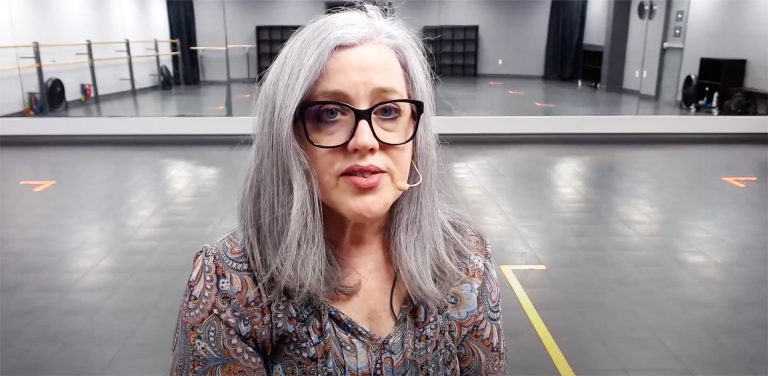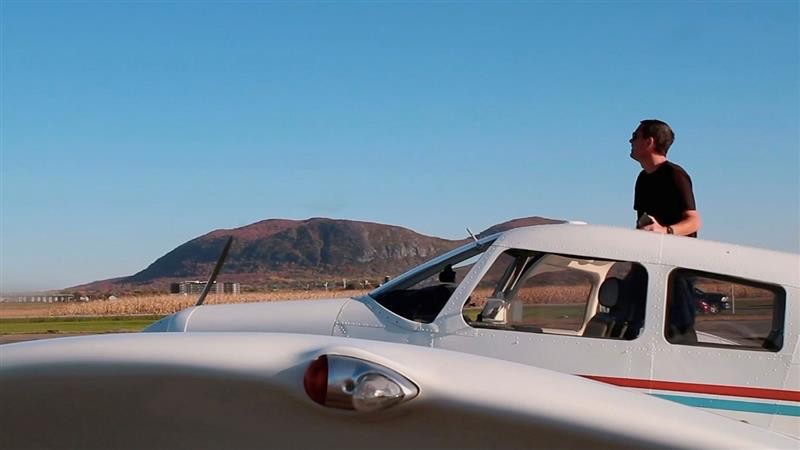Concordia students film poignant profiles of family and friends affected by the pandemic

During Montreal’s fall 2020 lockdown, 25 second-year communication studies students turned their cameras on family and close friends whose livelihoods had been affected by the COVID-19 pandemic.
Normally, the class project for Moving Images II (COMS 384) calls for students to work in small groups to film portraits of working professionals. But the public health measures necessitated adapting the assignment to ensure student safety, explains Elizabeth Miller, professor in Concordia’s Department of Communications Studies.
“We tweaked the portrait assignment to focus on a family member or friend within their bubble whose work life had changed as a result of COVID,” Miller says. “What we found was that it was this beautiful opportunity for new forms of collaboration. And what really came across was a deep intimacy between the ‘subject’ and the director.”
Adapting on the fly
Anthony-James Armstrong interviewed his aunt, a Montreal bus driver who dealt with safety concerns and navigating carefully around the new rush of cyclists taking to the pandemic-calmed streets. Claudia Juárez Achata profiled her sister, who designs new technologies for people with disabilities in Peru. And Jeanne Goulet-Hardy featured her dad, as his plans to transition his communications career to the flying industry were challenged by the coronavirus.
Meanwhile, Peter Morgan centred his project around his mother, Nancy Morgan, as she moved her Ottawa dance studio to online classes with his tech support from afar.
Prior to the pandemic, Nancy Morgan held in-person classes with 20 to 30 people at a time. When the crisis struck, she waited two weeks to see what would happen, then bought a webcam and microphone to go fully online. In the piece, she tells her son about the challenges of doing such a hands-on job remotely.
“There’s an in-person rapport in the studio that doesn’t translate well digitally. You can more clearly see what they are doing wrong, and you can work with them more closely,” Peter Morgan says.
“Luckily, my mother has been teaching a lot of these students for several years, and she was a professional dancer in Montreal earlier in life. So she knows the common mistakes and can guess quite accurately.”
Peter Morgan lives in Montreal, so he worked remotely with his mother to find the right platform for her classes and helped her figure out how her students could hear the music they were dancing to. “If I hadn’t done this for her, she would have had to close permanently months ago.”
While Morgan and his mother were in different cities, he shot interviews with her about what she’d learned from the process through her Discord channel, and directed his father on how to shoot cellphone footage of Nancy Morgan in her studio.
 Jeanne Goulet-Hardy featured her dad, whose career plans were challenged by the coronavirus.
Jeanne Goulet-Hardy featured her dad, whose career plans were challenged by the coronavirus.
‘Every student rose to the occasion’
Miller says she initially had concerns about students’ varying access to editing software or high-quality cameras. She adjusted the assignment to emphasize “everything but the technology” — turning the focus to the quality of the interview, casting of the subject, storytelling and sound quality.
Even with profound constraints, students went above and beyond. “They had to learn mobile journalism and handle every aspect,” she says. “The learning curve was steep, and I would say every single student rose to the occasion.”
To complete the assignment, students used their technology on hand — including, often, cellphone cameras — and the help of those in their bubbles. Goulet-Hardy’s father, who plays the guitar, even created an original film score and took her in his plane to get footage.
“There are unbelievably innovative ways of making films in this context, but also students were drawing on the love and commitment of family members,” Miller adds. “That was so touching to me. There was real teamwork of so many relatives getting involved in making sure this university term would be as meaningful as possible.”
Find out more about Communication Studies at Concordia.



